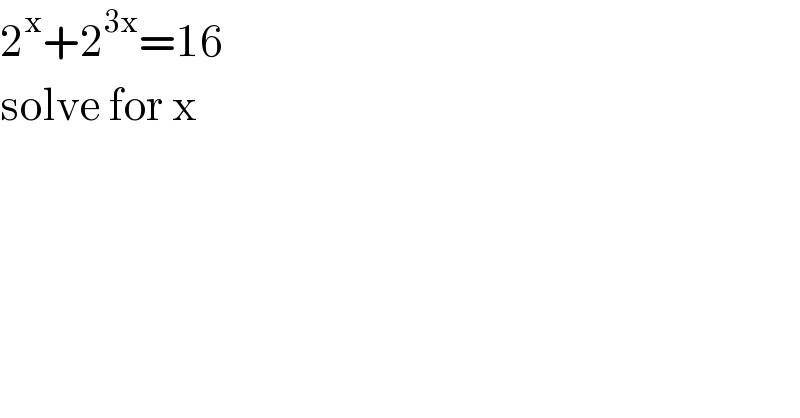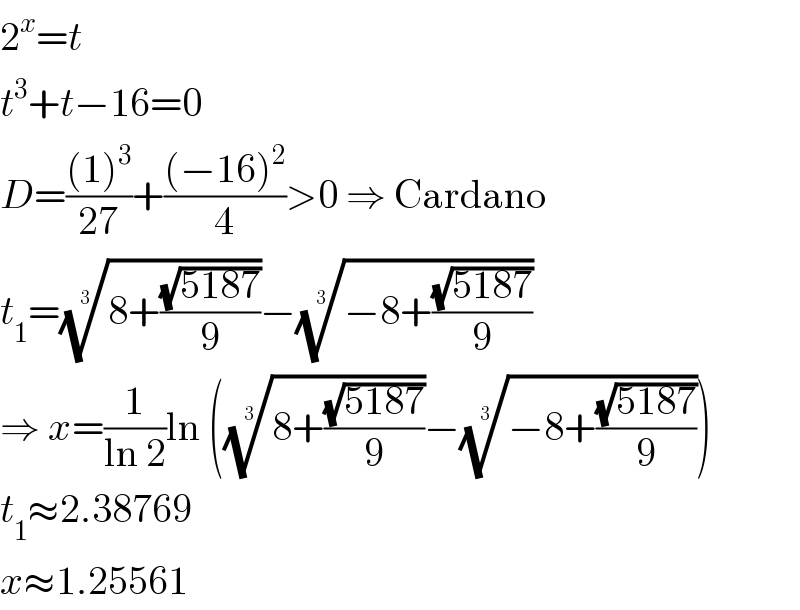Question Number 90762 by Ar Brandon last updated on 25/Apr/20

$$\mathrm{2}^{\mathrm{x}} +\mathrm{2}^{\mathrm{3x}} =\mathrm{16} \\ $$$$\mathrm{solve}\:\mathrm{for}\:\mathrm{x} \\ $$
Answered by MJS last updated on 25/Apr/20

$$\mathrm{2}^{{x}} ={t} \\ $$$${t}^{\mathrm{3}} +{t}−\mathrm{16}=\mathrm{0} \\ $$$${D}=\frac{\left(\mathrm{1}\right)^{\mathrm{3}} }{\mathrm{27}}+\frac{\left(−\mathrm{16}\right)^{\mathrm{2}} }{\mathrm{4}}>\mathrm{0}\:\Rightarrow\:\mathrm{Cardano} \\ $$$${t}_{\mathrm{1}} =\sqrt[{\mathrm{3}}]{\mathrm{8}+\frac{\sqrt{\mathrm{5187}}}{\mathrm{9}}}−\sqrt[{\mathrm{3}}]{−\mathrm{8}+\frac{\sqrt{\mathrm{5187}}}{\mathrm{9}}} \\ $$$$\Rightarrow\:{x}=\frac{\mathrm{1}}{\mathrm{ln}\:\mathrm{2}}\mathrm{ln}\:\left(\sqrt[{\mathrm{3}}]{\mathrm{8}+\frac{\sqrt{\mathrm{5187}}}{\mathrm{9}}}−\sqrt[{\mathrm{3}}]{−\mathrm{8}+\frac{\sqrt{\mathrm{5187}}}{\mathrm{9}}}\right) \\ $$$${t}_{\mathrm{1}} \approx\mathrm{2}.\mathrm{38769} \\ $$$${x}\approx\mathrm{1}.\mathrm{25561} \\ $$
